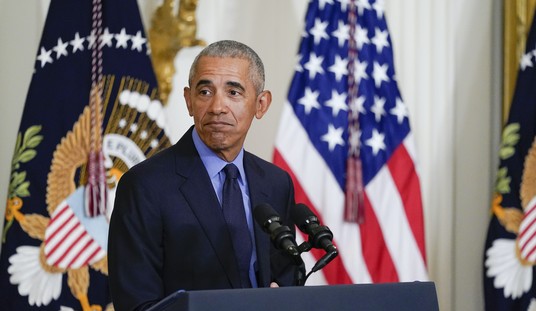This week, in a 142 to 10 vote, the United Nations General Assembly shook the diplomatic world with what looked like a political earthquake. With one condition, the body voted to recognize a so-called Palestinian state. The condition? If Hamas is removed from power.
If you stuck to the headlines, you'd think that history finally turned a corner. Reality, however, is that the "quake" was nothing more than 142 UN ambassadors bloviating in record amounts; it was all surface noise, no depth.
One hundred and forty-two countries voted in favor of the non-binding resolution enshrining the New York Declaration, which also calls on Hamas to release all hostages and condemns the terror group’s October 7 onslaught.
Joining Israel and the United States in opposing the resolution were Argentina, Hungary, Micronesia, Nauru, Palau, Papua New Guinea, Paraguay, and Tonga. Twelve countries abstained.
After the dust has settled on such a pronouncement, we find the foundations remain untouched, with Israel the only democracy in the Middle East.
The forces committed to her destruction haven't moved an inch.
Symbol Without Substance
Something that any student who paid attention during their civics classes knows is that the UNGA isn't a government. Its resolutions carry symbolic weight, not binding authority.
Israel isn't obligated to concede an inch of territory or sovereignty because 142 UN ambassadors raised their hands in New York. Only the UN Security Council can pass measures with any legal teeth, and even then, the United States has long used its veto to protect Israel from overreach.
The only thing the General Assembly did this week was generate headlines, more moral pressure, and nothing more than diplomatic theater.
Bias in Plain Sight
Stop me if you've seen this before. Israel has been on the receiving end of more UN resolutions than nearly any other nation, often exceeding the combined total against brutal regimes like North Korea, Iran, and Syria.
The message never changes: Israel must retreat, concede, or bend the bloody knee. Yet Hamas, Hezbollah, and the Iranian mullahs bankrolling terror rarely receive an equal amount of scrutiny, despite decades of suicide attacks, bombings, and rockets.
It's an intentional imbalance reflecting decades of entrenched bias against Israel within the UN system, and amplified by blocs of nations that prefer to blame the Jewish state instead of their own failures.
This vote is simply another chapter in the venomous history of an overwhelming majority of countries following the same code of conduct: condemn Israel and ignore the violence of its enemies.
The Fantasy of a Two-State Solution
Again, stop me if you've heard this before: the language of peace, "tangible, timebound, irreversible steps" towards two states.
Creating a Palestinian state isn't a step towards peace; it's creating the staging ground for the next war. Until the Palestinian leadership accepts Israel's right to exist, no amount of paper resolutions will bring either security or coexistence.
It seems the only people in the Middle East who know this are the Israelis. They withdrew from Gaza in 2005, only to watch Hamas transform it into a fortress. To expect Israel to repeat the same mistake under the banner of "international consensus" is asking them to commit national suicide.
Final Thoughts
The formal-sounding UN earthquake may rattle headlines, but the ground under Israel's feet won't even wiggle. Nations have talked about statehood for Palestinians for years, but there's something the diplomats in New York don't know: Survival isn't negotiable. Peace will happen only when the Palestinians select leaders who value life more than death, coexistence more than conquest.
Unless the well-heeled jet set wannabe rulers in New York face decades of their geographic neighbors raining death upon them, they will never understand what Israel lives with each day.
Until then, Israel stands, as it always has, firm against the tide of hollow resolutions from empty suits.










